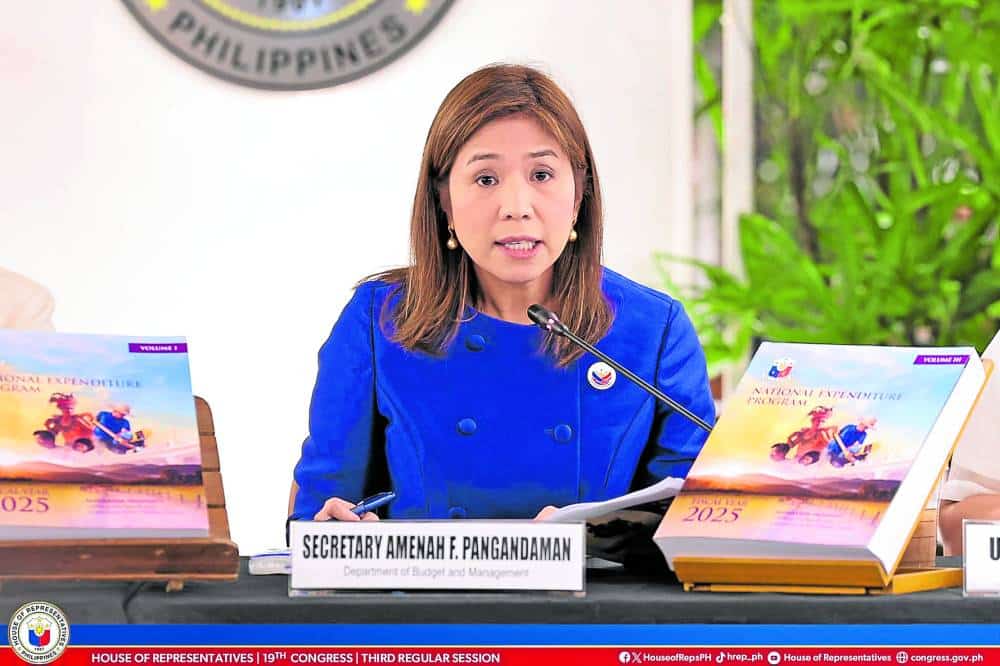DBM orders agencies to submit ‘catch-up’ spending plans

HOR photo
MANILA, Philippines — The Department of Budget and Management (DBM) on Wednesday ordered national government agencies with low budget obligation rates to submit “catch-up” spending plans.
Budget Secretary Amenah Pangandaman made the pronouncement after she noted that the DBM has amped up its efforts to ensure the proper and timely utilization of agencies’ budgets.
According to Pangandaman, DBM is in constant communication with each national agency.
READ: Marcos signs laws to improve gov’t procurement system, curb online scams
“We just started providing letters to all agencies quarterly where we indicate their specific projects and programs that are underutilized, and then we remind them to already…start procurement,” said Pangandaman during a Kapihan sa Manila Bay briefing.
“We just gave it, and we are still expecting replies,” she added.
Based on data provided by Pangandaman, the agencies with the lowest obligation rates were the following:
- Congress of the Philippines – 8.8 percent
- Commission on Higher Education – 19.2 percent
- Department of Migrant Workers – 22.1 percent
- Department of Human Settlements and Urban Development – 24 percent
- Department of Energy – 33.8 percent
- Philippine Sports Commission – 35.2 percent
- Office of the President – 37.2 percent
- Department of Labor and Employment – 37.8 percent
- Office of the Vice President – 39.9 percent
- Department of Justice – 41.4 percent
On the other hand, below are the agencies with the highest (above 50 percent) obligation rates:
- Office of the Presidential Adviser on Peace, Reconciliation and Unity – 84.3 percent
- National Intelligence Coordinating Agency – 80.4 percent
- Department of Public Works and Highways – 70.5 percent
- Department of Finance – 69.9 percent
- Department of Foreign Affairs – 58.5 percent
- Department of the Interior and Local Government – 57.4 percent
- Commission on Elections – 55.7 percent
- Department of National Defense – 52.5 percent
- Department of Agriculture – 52.2 percent
- Commission on Audit – 51.3 percent
Pangandaman said the most common reason cited by agencies for their low budget utilization is the procurement process.
“They are having difficulty in the procurement process. Hopefully, with the new procurement act, the procurement will be even faster,” she said.
It was in July when President Ferdinand Marcos Jr. approved the New Government Procurement Act or Republic Act 12009.
The law aims to address loopholes in the current government procurement system for a more economical and responsive process.